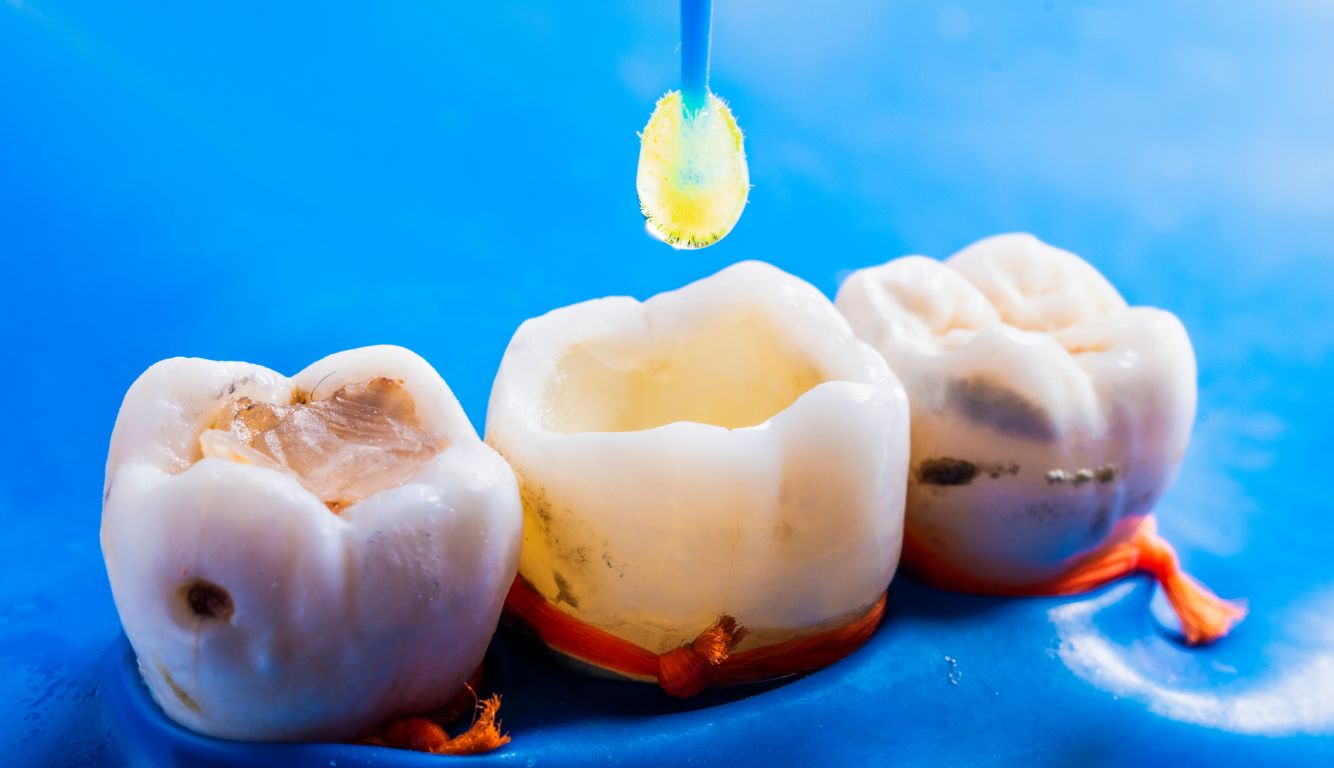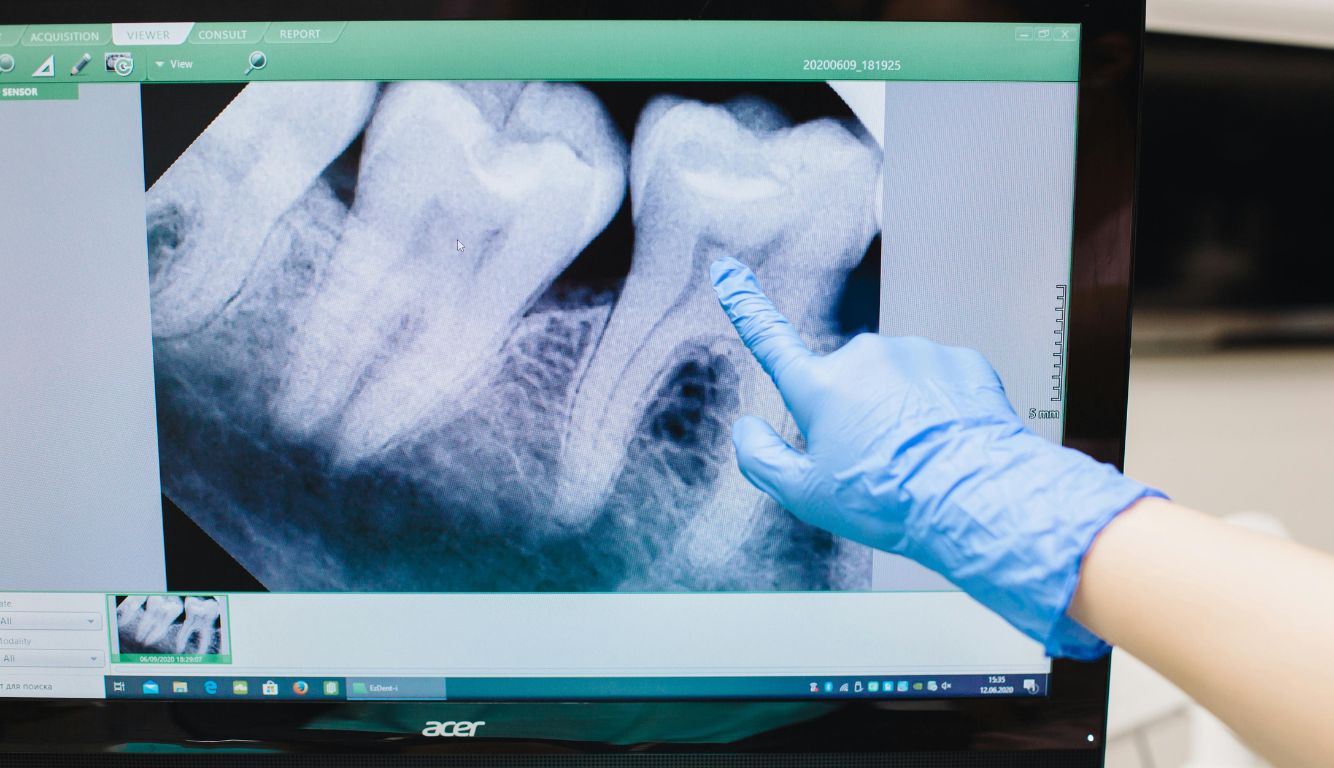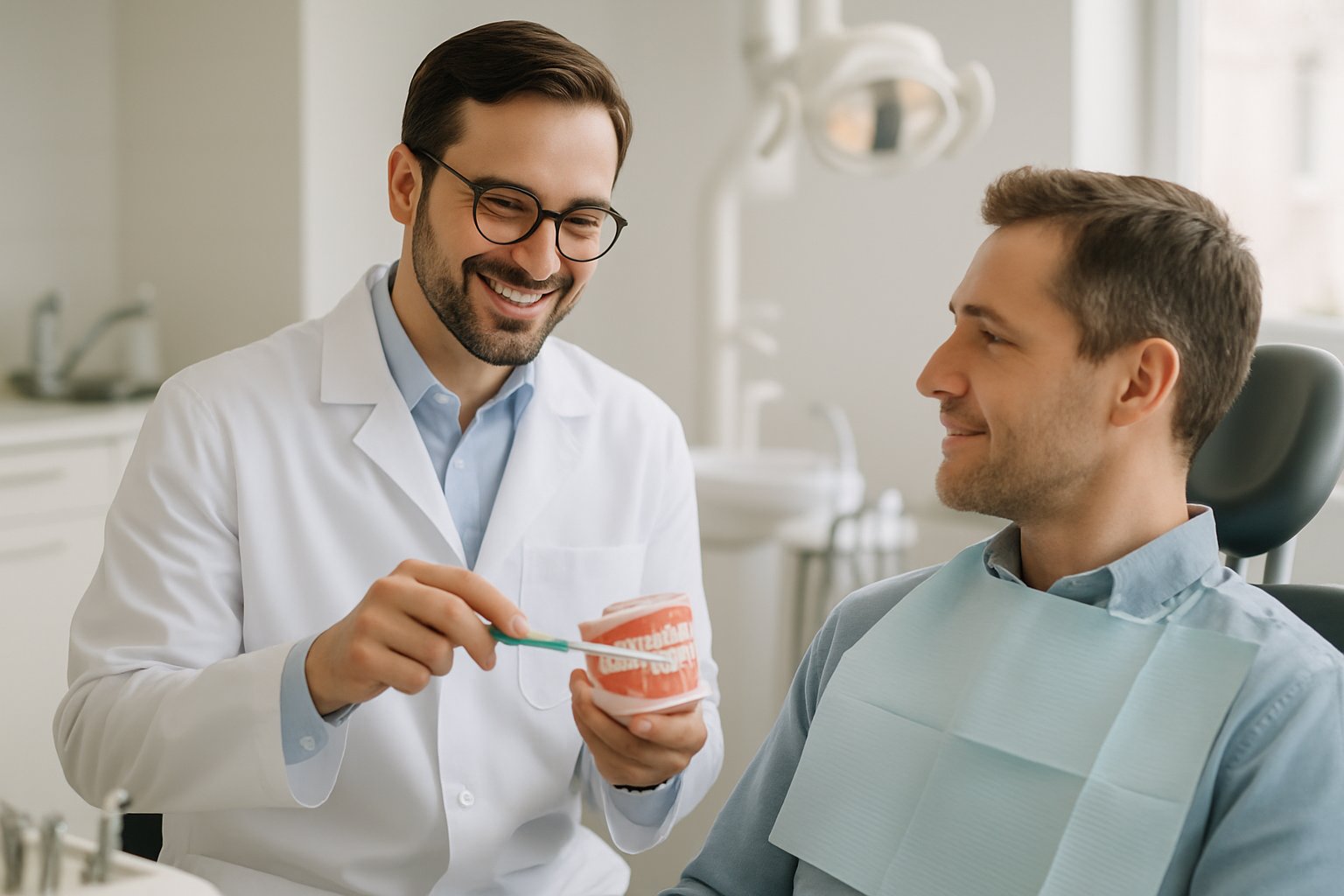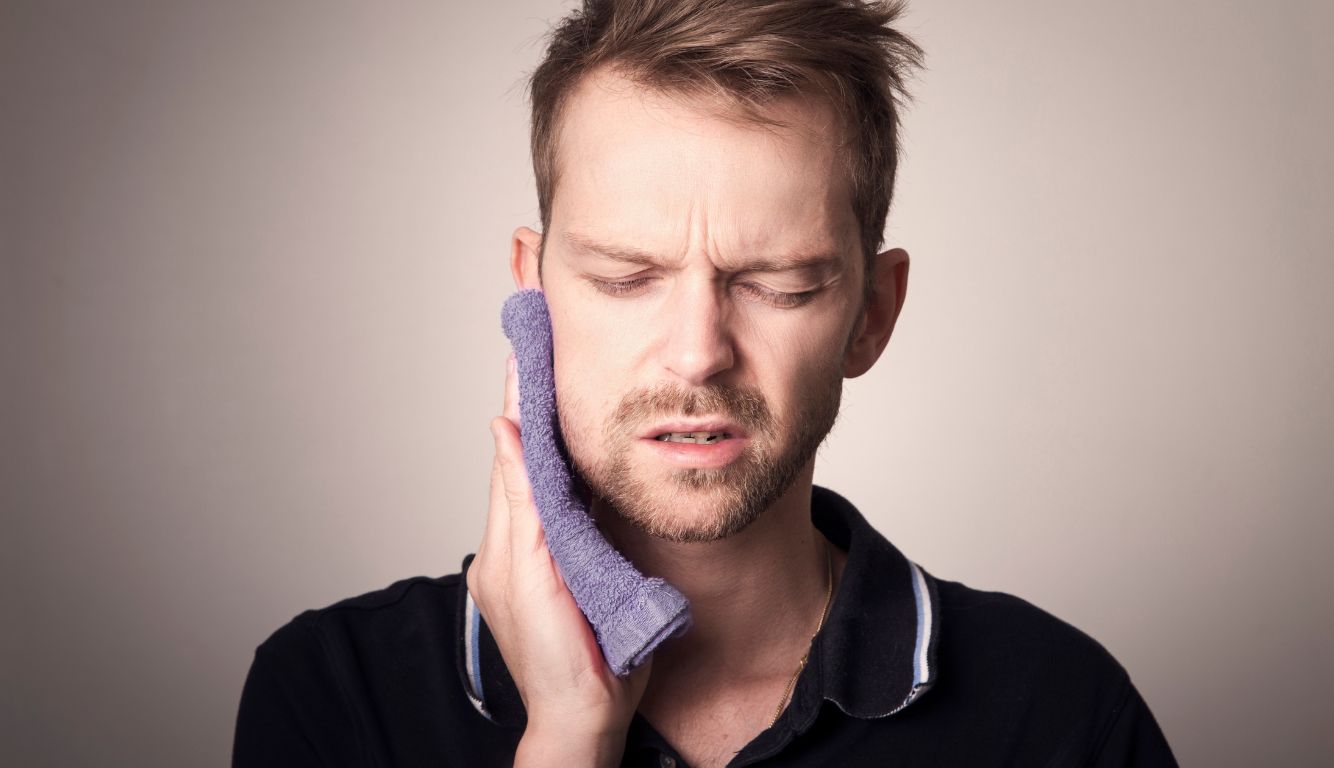What Is a Dental Emergency?

When you have sudden tooth pain or a dental injury, it can be hard to know if you need emergency care right away.
Many people go to the emergency room for dental problems that could wait for a regular dental visit.
A dental emergency means you have severe pain, bleeding, infection, or trauma that threatens your oral health and requires immediate treatment.
Not all dental problems need urgent care, and knowing the difference can save you time and money.
We will help you understand which dental problems need immediate attention and which ones can wait.
You will also learn about common causes of dental emergencies and how to prevent them.
Key Takeaways
- True dental emergencies involve severe pain, bleeding, infection, or trauma that needs immediate treatment.
- Many dental problems like minor chips or lost fillings can wait for regular dental appointments.
- Knowing when to seek emergency care versus waiting can save you time and money.
What Is a Dental Emergency?
A dental emergency needs immediate care to stop pain, save teeth, or prevent serious problems.
You can tell the difference between urgent and non-urgent dental issues by looking at specific warning signs.
Definition and Criteria
A dental emergency is any dental problem that needs immediate treatment.
These problems can cause severe pain, bleeding, or damage to your teeth and mouth.
Key signs of a dental emergency include:
- Severe toothache that won’t stop
- Heavy bleeding from your mouth
- Broken or knocked-out teeth
- Swelling in your face or gums
- Signs of infection like fever
If waiting could make the problem worse, it counts as an emergency.
Emergency dental care focuses on stopping pain and preventing permanent damage.
Some dental problems seem scary but aren’t true emergencies.
A small chip in your tooth or mild sensitivity can usually wait for regular dental care.
Types of Dental Emergencies
Severe Toothache
A severe toothache that causes intense pain needs immediate care.
This often means infection or nerve damage inside the tooth.
Knocked-Out Teeth
When a tooth gets completely knocked out, you have about 30 minutes to save it.
An emergency dentist can often put the tooth back if you act fast.
Broken or Cracked Teeth
Large breaks or cracks that cause pain are emergencies.
Small chips without pain can wait for regular dental visits.
Dental Infections
Infections cause swelling, fever, and severe pain.
These can spread to other parts of your body if you don’t treat them quickly.
Uncontrolled Bleeding
Heavy bleeding from your gums or mouth that won’t stop needs immediate attention.
Difference Between Urgent and Non-Urgent Dental Care
Urgent dental care means you need treatment within 24 hours.
This includes severe pain, infections, or trauma to your teeth and mouth.
Non-urgent care can wait a few days or weeks.
Examples include routine cleanings, small fillings, or minor tooth sensitivity.
Go to the emergency room if you have:
- Trouble breathing or swallowing
- Severe facial swelling
- High fever with dental pain
- Uncontrolled bleeding
Call an emergency dentist if you have:
- Severe toothache
- Knocked-out teeth
- Large breaks or cracks
- Dental infections
Most dental emergencies should go to an emergency dentist first.
The emergency room can help with life-threatening problems but has limited dental treatment options.
Common Dental Emergencies and Their Causes

Dental emergencies happen when teeth get damaged, infections spread, or pain becomes too severe to ignore.
These situations need quick action to save teeth and prevent bigger problems.
Severe Toothache and Dental Pain
A severe toothache means something is wrong inside your tooth or gums.
The pain might be sharp, throbbing, or constant.
Most common causes include:
- Tooth decay that reaches the nerve
- Gum disease around the tooth
- Cracked tooth that exposes the nerve
- Food stuck between teeth
- Infected tooth root
Dental pain that keeps you awake at night or makes it hard to eat counts as an emergency.
The pain often gets worse when you bite down or drink hot or cold liquids.
When tooth decay goes deep, it can kill the nerve inside your tooth.
This often leads to a root canal or tooth removal.
Knocked-Out Tooth and Tooth Trauma
A knocked-out tooth is one of the most serious dental emergencies.
Time matters most when this happens.
Sports injuries, falls, and car accidents cause most knocked-out teeth.
The tooth gets pushed completely out of its socket in your jawbone.
What to do right away:
- Pick up the tooth by the crown (white part)
- Don’t touch the root
- Rinse gently with water if dirty
- Try to put it back in the socket
- Keep it in milk if you can’t put it back
If you get help within 30 minutes, we can often save knocked-out teeth.
After two hours, the chances drop a lot.
Soft tissue injuries often happen with tooth trauma.
Your lips, tongue, or cheeks might get cut and bleed.
Broken, Cracked, or Chipped Tooth
Cracked tooth problems range from small chips to teeth split in half.
Not all cracks cause pain right away.
Types of tooth damage:
- Small chips: Usually not emergencies
- Large breaks: Expose the nerve and cause pain
- Vertical cracks: Go from top to bottom of tooth
- Split teeth: Broken into separate pieces
A broken tooth becomes an emergency when it hurts or has sharp edges that cut your tongue.
Large breaks often need crowns or root canals to fix.
Hard foods like ice or popcorn kernels cause many cracked teeth.
Old fillings can also make teeth weak and more likely to break.
Dental Abscess and Infections
A dental abscess is a pocket of pus that forms around an infected tooth.
This infection can spread to other parts of your body.
Signs of a dental abscess:
- Severe, throbbing pain
- Swelling in your face or jaw
- Fever
- Bad taste in your mouth
- Swollen lymph nodes in your neck
Tooth decay that reaches the nerve causes most abscesses.
The bacteria kill the nerve and create an infection at the root tip.
Gum disease can also cause abscesses between your tooth and gum.
These infections make your gums red, swollen, and painful.
Dental infections don’t go away on their own.
They need antibiotic treatment and often a root canal to remove the infected tissue.
What Is Not a Dental Emergency?

Not all dental problems need immediate care.
Minor pain, small chips, and lost fillings can usually wait for a regular appointment.
Minor Toothache or Tooth Sensitivity
A mild toothache that comes and goes is not urgent.
You can manage this pain with over-the-counter medicine like ibuprofen or acetaminophen.
Tooth sensitivity to hot or cold foods is also not an emergency.
This happens when the outer layer of your tooth wears down.
It’s uncomfortable but not dangerous.
Signs it’s not urgent:
- Pain is mild to moderate
- Pain goes away after a few minutes
- You can eat and drink normally
- No swelling in your face or gums
Schedule a regular appointment within a week or two.
Keep up good oral hygiene by brushing twice daily and flossing.
Avoid very hot or cold foods until you see your dentist.
Use a soft-bristled toothbrush and toothpaste made for sensitive teeth.
These steps often help reduce the discomfort.
Small Chips and Cracks
Tiny chips in your teeth are common and rarely urgent.
These small breaks in the tooth surface don’t usually cause pain or damage.
Surface cracks that don’t go deep into the tooth can wait for treatment.
You might see thin lines on your teeth, but they’re often just cosmetic issues.
When small chips aren’t emergencies:
- No pain or sensitivity
- Chip is smaller than a grain of rice
- Edges aren’t sharp enough to cut your tongue
- No exposed nerve or deep crack
Save any broken pieces if possible.
Rinse your mouth with warm salt water to keep the area clean.
Avoid chewing hard foods on that side of your mouth.
Call your dentist within a few days to schedule repair.
Small chips can often be fixed with simple bonding or smoothing.
Lost Filling or Crown
A lost filling or crown feels strange but isn’t usually urgent.
Your tooth might be sensitive to temperature or pressure, but this rarely causes severe pain.
Steps to take:
- Rinse your mouth with warm water
- Apply dental cement from the pharmacy as a temporary fix
- Avoid sticky or hard foods
- Keep the area clean with gentle brushing
If you still have the crown, save it.
Sometimes we can put the same crown back on your tooth.
Don’t use household glue or other products not made for teeth.
Call your dentist within a week to replace the lost filling.
The exposed tooth can collect bacteria and cause bigger problems if left too long.
Good oral hygiene becomes extra important during this time.
Mouthguard and Dental Appliance Issues
Broken or lost mouthguards don’t need emergency care.
You can wait for regular office hours.
Loose braces, retainers, or other dental appliances also aren’t urgent.
These devices might feel uncomfortable, but they rarely cause serious problems overnight.
What you can do:
- Stop wearing the broken appliance
- Use dental wax on sharp edges
- Rinse with salt water if there’s minor irritation
- Switch to a backup appliance if you have one
Contact your dentist or orthodontist during normal business hours.
They can repair or replace your mouthguard or appliance safely.
Don’t try to fix these devices yourself.
Home repairs often make the problem worse and can damage your teeth.
Prevention and Management of Dental Emergencies

Good oral hygiene and regular dental visits prevent most dental emergencies.
When emergencies do happen, knowing basic first aid and when to seek professional help can save your teeth and reduce pain.
Oral Hygiene and Dental Check-Ups
We prevent most dental emergencies through daily oral hygiene habits.
Brushing twice daily with fluoride toothpaste removes plaque that causes tooth decay and gum disease.
Flossing daily cleans between teeth where brushes cannot reach.
This prevents cavities from forming between teeth.
Regular dental check-ups catch problems before they become emergencies.
We recommend visits every six months for cleanings and exams.
During check-ups, dentists find small cavities, loose fillings, and gum problems early.
Fixing these issues prevents painful infections and tooth loss later.
Mouthguards protect teeth during sports and prevent grinding damage at night.
Custom-fitted guards from your dentist work better than store-bought options.
Avoiding hard foods like ice, popcorn kernels, and hard candy prevents cracked teeth.
Never use your teeth as tools to open packages or bottles.
Pain Management and First Aid Steps
Over-the-counter pain relievers help manage dental pain until you can see a dentist.
Ibuprofen works best because it reduces swelling and pain.
Take medication as directed on the package.
Never place aspirin directly on teeth or gums because it can burn tissues.
Cold compresses reduce swelling and numb pain.
Apply ice wrapped in a towel to the outside of your cheek for 15-20 minutes.
For knocked-out teeth, rinse gently with water but do not scrub.
Handle the tooth by the crown, not the root.
Salt water rinses help clean wounds and reduce bacteria.
Mix half a teaspoon of salt in warm water and rinse gently.
Avoid very hot or cold foods and drinks.
These can increase pain in damaged teeth.
Tooth Preservation Techniques
Acting quickly gives us the best chance to save damaged teeth. Treat knocked-out permanent teeth within one hour for the highest success rate.
Keep knocked-out teeth moist by placing them in milk, saliva, or a tooth preservation kit. Do not store teeth in water or let them dry out.
For cracked teeth, rinse with warm water. Apply a cold compress to reduce swelling.
Avoid chewing on the injured side of your mouth.
If you break a filling or crown, keep the pieces if possible. Clean them gently and bring them to your dentist.
Use temporary dental cement from a pharmacy to protect exposed teeth until you see a dentist. This helps prevent further damage and reduces pain.
Stay away from sticky or hard foods that could worsen damage to weakened teeth.
When to Visit the Emergency Room or Dentist
Call an emergency dentist first for most dental problems. Dentists have the right tools and training to handle tooth emergencies.
Go to the emergency room for facial trauma, jaw fractures, or severe infections with fever and swelling. These situations need immediate medical care.
Seek urgent care for difficulty swallowing, breathing problems, or high fever with dental pain.
If you have severe bleeding that will not stop after 15 minutes of direct pressure, get emergency care right away. This may indicate a serious injury.
Most dental offices provide after-hours emergency numbers. Call these before visiting the emergency room unless you have life-threatening symptoms.
Emergency rooms can prescribe antibiotics and pain medication. They cannot perform most dental procedures.
Frequently Asked Questions
How can you determine if a dental situation is an emergency?
Look for signs that need immediate care. Severe pain that does not improve with over-the-counter medicine is usually an emergency.
Heavy bleeding from your mouth that continues after 15 minutes also needs prompt attention. A knocked-out tooth requires emergency care within one hour for the best chance of saving it.
Swelling in your face, jaw, or neck can signal a serious infection. This swelling can block your airway and become life-threatening.
A broken jaw or facial bones always require emergency treatment. Go to the hospital emergency room for these injuries.
What steps should you take when you experience severe tooth pain after regular dental office hours?
Call your dentist’s emergency line first. Most dental offices have an after-hours number that connects you to the dentist or an on-call service.
Take over-the-counter pain medicine as directed. Ibuprofen works better than acetaminophen for dental pain because it reduces swelling.
Apply a cold compress to the outside of your cheek for 15 minutes at a time. This helps reduce pain and swelling until you can see a dentist.
Avoid very hot or cold foods and drinks. Sleep with your head elevated on extra pillows to reduce blood flow to the painful area.
Can a lost filling or crown be considered a dental emergency?
A lost filling or crown is urgent but not always a true emergency. Call your dentist within 24 hours to schedule an appointment.
The exposed tooth can be very sensitive to hot, cold, and sweet foods. This sensitivity can cause significant discomfort but usually is not dangerous.
If you have severe pain or sharp edges cutting your tongue, seek care sooner. Clean the crown and try to place it back on the tooth with dental cement from the pharmacy.
Keep the crown safe and bring it to your dental appointment. The dentist can often recement the same crown if it is not damaged.
Who should you contact if faced with a dental emergency over the weekend?
Call your regular dentist’s office first, even on weekends. Most dental practices have emergency contact information on their voicemail.
Many dentists take turns covering emergency calls for their local dental community. Your dentist may refer you to another dentist who is available that weekend.
Hospital emergency rooms can help with facial trauma, uncontrolled bleeding, or signs of serious infection. They cannot fix broken teeth or do most dental procedures.
Urgent care centers sometimes have dentists on staff or can provide pain medicine and antibiotics. Call ahead to ask if they treat dental problems.
What options are available for handling a dental emergency when you lack financial resources?
Dental emergencies can be expensive if you do not have insurance or savings. Many dentists offer payment plans or will work with you on the cost.
Dental schools often provide emergency care at reduced rates. Students work under close supervision by experienced dentists.
Community health centers sometimes have dental programs for low-income patients. These programs may have sliding fee scales based on your income.
Some charitable organizations help people pay for emergency dental care. Local churches and nonprofit groups sometimes have emergency assistance funds.
Are there any immediate home remedies for managing a dental emergency before reaching professional help?
You can use several safe home treatments to manage pain temporarily. Rinse with warm salt water to reduce swelling and fight bacteria.
Take over-the-counter pain relievers regularly for better relief. Always follow the package directions and do not exceed the recommended dose.
Apply a small amount of clove oil to the affected area with a cotton swab to numb tooth pain. Only use a little at a time.
Do not put aspirin directly on your gums or teeth because it can cause chemical burns. Avoid extremely hot or cold foods that may increase sensitivity and pain.
📞 Contact Kaufman Dentistry Today
Give us a call at (310) 838-7780 to schedule your appointment and take the first step towards a stunning smile.
You can find us at 10760 Washington Blvd., Culver City, CA 90232. We look forward to welcoming you to our practice and helping you achieve the smile of your dreams!
